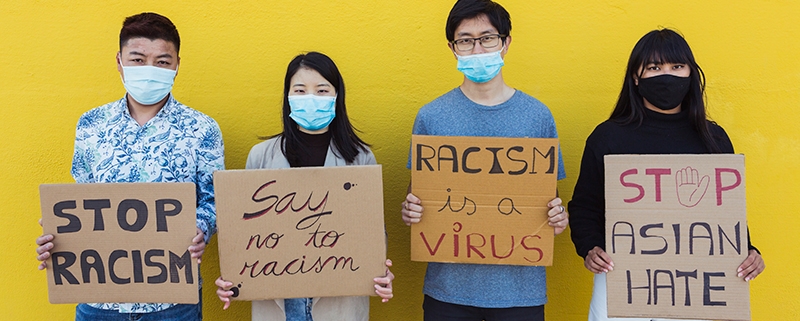by Craig Heidenreich
If someone accused me of being racist, I think I would feel quite defensive because of all the negative connotations around that term.
I would probably defend myself with the thought that I am more tolerant and open-minded than that other bigoted person I know – that person who says what the rest of us only think (from time to time).
Let’s be honest, humans experience this strange tension along racial lines that is almost as old as history itself.
What is this driving force in our nature that will justify ourselves by putting someone else down?
Sadly, this is as old as sin itself, as old as Adam justifying himself by putting Eve down – ‘this woman you gave me caused me to eat the fruit’. It wasn’t Adam’s finest moment to focus on gender that day and about as silly as our focus on genetics.
Racism is part of the air we breathe in this fallen world and is fed by our insecurities.
We squirm when family members or certain politicians overtly appeal to the worst in our tribal natures, but we also contend with it in many subtle ways.
We need to fight this instinct if we choose to follow Jesus and be anything like our Heavenly Father.
In heaven, when ‘every tribe and tongue’ are worshipping, there is simply no racial hierarchy.
Jesus left his followers with a final request – that we should go out among all the nations to invite them back into a relationship with him.
The Father loves the whole world. Probably the most quoted verse of the New Testament would be John 3:16, ‘For God so loved the world, that he gave …’.
Our Heavenly Father invites us to love like he loves and enter into his joy as each lost sheep is found.
Let me offer a stark challenge: Racism is one of Satan’s primary attacks against God’s plan to gather all people back to himself!
Satan tempts us to judge the very people that Jesus died to save, the people we are called to love.
We need to see this attack for what it is and not tolerate it – it is as deadly as the self-righteousness that stops me associating with a sinner when I should be ‘the beggar showing another where to find bread’.
As we adjust our thinking to value what the Lord wants, let’s take in something of his sheer delight in the diversity of the humans he has made.
This is not about tolerating each other. This is about celebrating each other. This is about a church that is enriched and completed when we all come together.
So, what does this all mean in practice?
If we as individuals are to be free of this subtle racist pull, we probably need to ask the Lord to wash our minds of attitudes that we have taken in from our parents, our schooling, the impact of media, and even our church life. He may bring attitudes to mind that we should repent of.
Just think of the strong confirmation bias that happens when we access the internet and get our news from limited or similar sources. We think that we are sophisticated enough to spot the prejudice, but our minds can be shaped by what we see and hear.
I am aware of a dislike of certain nations or ethnicities that have lodged in me after watching some movie (maybe 30 years ago). The movie was probably quite biased, but at the time it suited my fallen nature to dislike those people. All these years later I find myself reacting to certain accents when I hear them.
How easily we start to judge other nations or ethnic groups for systemic injustices while self-righteously thinking, ‘I am not like that’. This is very thin ice!
We need to go through the Lord’s washing machine as much as Peter did in Acts 10. A voice from heaven said to him that day, ‘You must stop calling unclean, what God has made clean’.
When we meet together in church, our human instinct is to gather with others like ourselves and to seek leaders who look like us.
Is it possible that our church experience should be less about our comfort and more about our growth in love?
Humans contend with all sorts of tensions that play out along generational, gender, social and intellectual lines. These are the contexts for us to ‘prefer one another in love’ (Rom 12:10). Our racial differences are also a great context to act maturely and, in a world riven by racism, our mutual respect (across racial lines) is a clear witness to the work of our Lord.
Recently I was in a church service watching people line up to take communion and the line that day was a veritable ‘united nations’. It made my heart feel glad to see the transforming work of Christ in action among our Lutheran family.
Let’s lift our gaze to focus on what the Lord has in mind.



